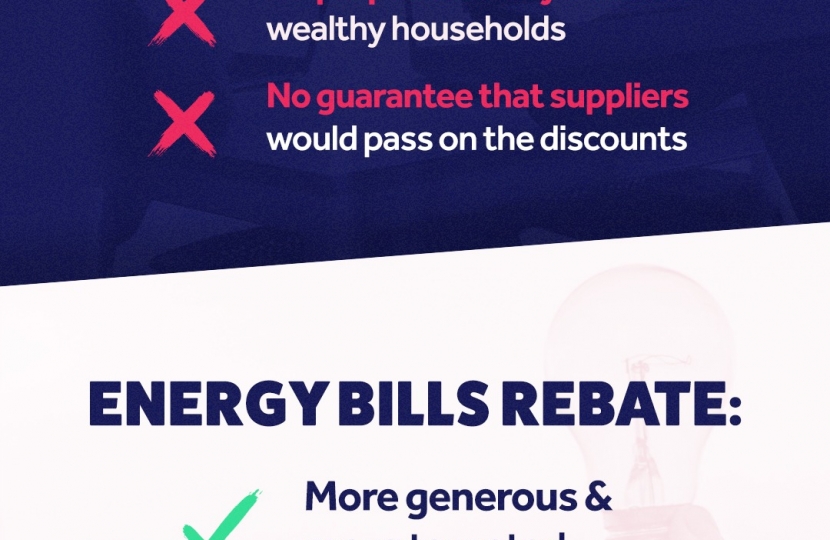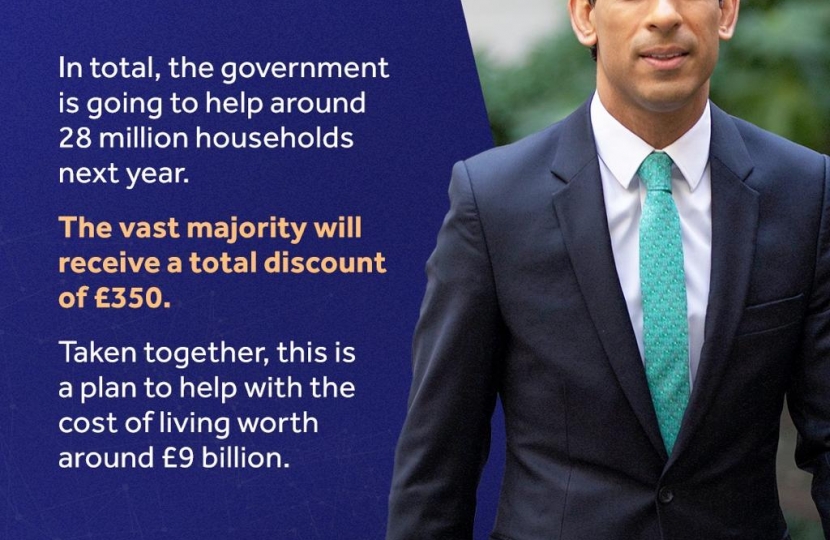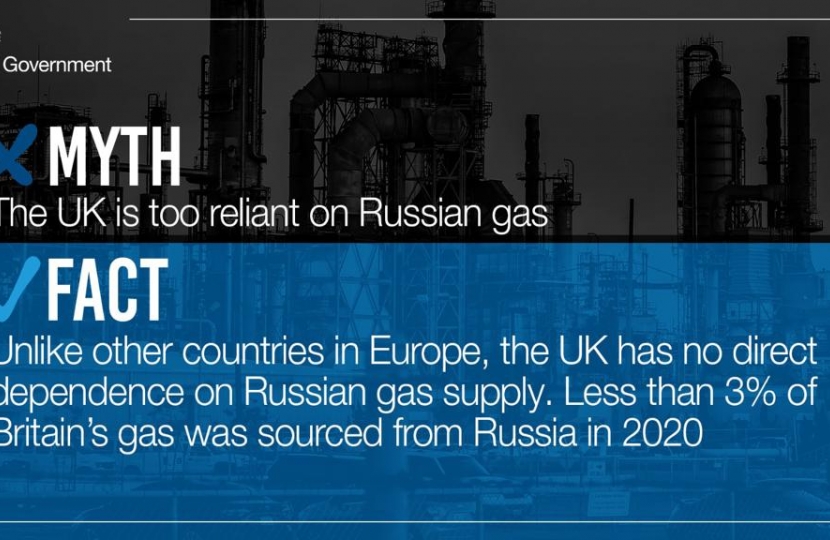With the UK Chancellor Rishi Sunak having today announced a three-part plan to help with household fuel bills, Vale of Clwyd MP Dr James Davies is calling on the Welsh Government to ensure that the additional £175m provided to them from the UK Government is used immediately to help families in the Vale of Clwyd, and throughout the rest of Wales, with energy price rises.
Wholesale gas prices are currently around five and a half times higher than the average – pushing up both gas and electricity bills. Britain is currently dependent on gas for 40% of its electricity production. The rise in gas prices has been driven by:
• Much increased demand as economies recover from the pandemic.
• A cold winter last year in the northern hemisphere. This depleted gas storage levels.
• A general transition internationally away from coal to gas.
• Reductions in gas supply from Russia to Europe, increasing the price on the continent.
• Scarcity in electricity generation created by a period of very low wind, a fire affecting the main power interconnector between France and Britain, and nuclear units having been off grid.
Following Ofgem’s confirmation today that the energy price cap will rise by £700 from April, the Chancellor announced his three-part plan, which is worth £350 per household in a total package of support worth £8.6 billion.
The plan includes:
1. A £200 ‘smoothing’ rebate on energy bills for all households across Britain, to be paid back over the next five years at £40 per year – starting from April 2023
2. A non-repayable £150 cash rebate for homes in Council Tax bands A-D – equivalent to 80 per cent of all households, helping both lower and middle-income families
3. £144 million of discretionary funding for local authorities to support households not eligible for the council tax rebate.
Point 1 applies to Wales, Scotland and England; however measures two and three of the plan are devolved and will see the Labour administration in Cardiff Bay receive an extra £175m in consequential funding.
James is therefore urging Ministers in Cardiff Bay to use the money to give households in Wales a council tax rebate and to create a discretionary fund for local authorities to use on households who do not meet the criteria.
He said:
“The cost of energy is rising worldwide as economies recover from the pandemic. The wholesale cost of gas is particularly affected. I know soaring energy bills are a great to concern to my constituents here in the Vale of Clwyd, as they are to millions of people throughout the UK. I was pleased to meet the Chancellor a few weeks ago to discuss how we can help people through this difficult period and today’s announcement by the Chancellor will be very much welcomed.
“The UK Government has already taken steps to help people with rising living costs, including reducing the Universal Credit taper rate, increasing the National Living Wage, freezing fuel duty for the 12th year in a row, and launching a £500 million Household Support Fund to help the lowest income households with their bills. Now the Government has gone further with the Chancellor’s three-part plan.
“However with points two and three of the plan devolved, it is vital that the Labour Welsh Government uses the £175m they have been provided to fund tax rebates and create a discretionary fund for local authorities to use on households who do not meet the criteria.”
James added:
“The UK Government are also continuing with plans to increase the Warm Homes Discount and extending eligibility by one-third to three million vulnerable households worth another £150, and this also applies to Wales.
“Sadly, the rising cost of gas is a global problem, and the Government has limited immediate levers to deal with these issues. Today’s package rightly focusses on both lower and middle-income households - but I still recognise that fuel bill increases will be a struggle for many. It is extremely important that we press ahead with more renewables and nuclear power so that this country does not depend on imported energy. Meanwhile we must appreciate that we will have to rely upon and ensure our North Sea oil and gas industry remains competitive as we transition to net zero.”



